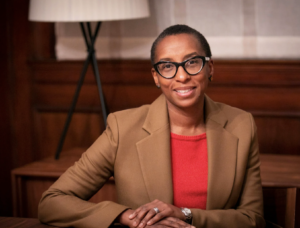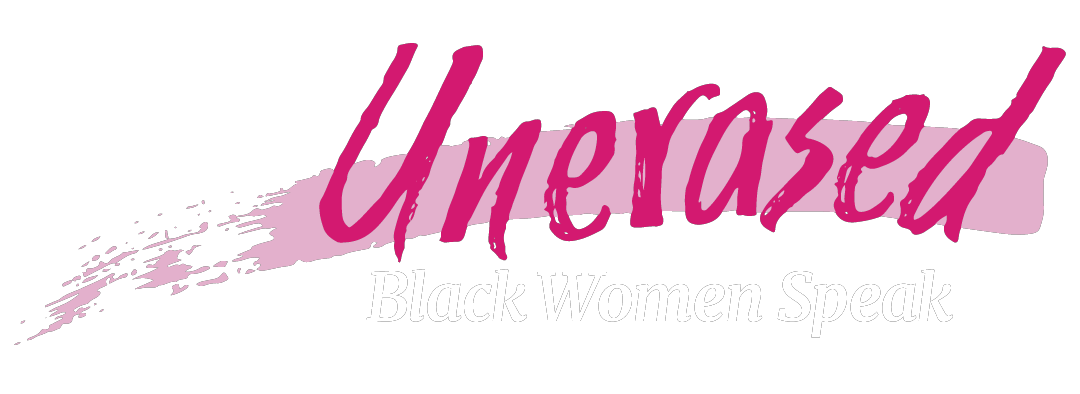Claudine Gay, a widely admired higher education leader and distinguished scholar of democracy and political participation, will become the 30th president of Harvard University on July 1.
Since 2018, Gay has served as the Edgerley Family Dean of Harvard’s Faculty of Arts and Sciences (FAS), the University’s largest and most academically diverse faculty, spanning the biological and physical sciences and engineering, the social sciences, and the humanities and arts. As dean, she has guided efforts to expand student access and opportunity, spur excellence and innovation in teaching and research, enhance aspects of academic culture, and bring new emphasis and energy to areas such as quantum science and engineering; climate change; ethnicity, indigeneity, and migration; and the humanities.
She has successfully led FAS through the COVID pandemic, consistently and effectively prioritizing the dual goals of safeguarding community health and sustaining academic continuity and progress. The disruptive effects of the crisis notwithstanding, she has also launched and led an ambitious, inclusive, and faculty-driven strategic planning process, intended to take a fresh look at fundamental aspects of academic structures, resources, and operations in FAS and to advance academic excellence in the years ahead.
The daughter of Haitian immigrants, Gay received her bachelor’s degree in 1992 from Stanford, where she majored in economics and was awarded the Anna Laura Myers Prize for best undergraduate thesis. In 1998, she received her Ph.D. in government from Harvard, where she won the Toppan Prize for best dissertation in political science. A quantitative social scientist with expertise in political behavior, Gay served as an assistant professor and then tenured associate professor at Stanford before being recruited to Harvard in 2006 as a professor of government. She was also appointed a professor of African and African American Studies in 2007. She was named the Wilbur A. Cowett Professor of Government in 2015, when she also became dean of social science at FAS.
“Claudine is a remarkable leader who is profoundly devoted to sustaining and enhancing Harvard’s academic excellence, to championing both the value and the values of higher education and research, to expanding opportunity, and to strengthening Harvard as a fount of ideas and a force for good in the world,” said Penny Pritzker, senior fellow of the Harvard Corporation and chair of Harvard’s presidential search committee. “As the Edgerley Family Dean of the Faculty of Arts and Sciences since 2018, and previously as dean of social science, Claudine has brought to her roles a rare blend of incisiveness and inclusiveness, intellectual range and strategic savvy, institutional ambition and personal humility, a respect for enduring ideals, and a talent for catalyzing change. She has a bedrock commitment to free inquiry and expression, as well as a deep appreciation for the diverse voices and views that are the lifeblood of a university community.
“As her many admirers know, Claudine consults widely; she listens attentively; she thinks rigorously and imaginatively; she invites collaboration and resists complacency; and she acts with conviction and purpose,” continued Pritzker. “All of us on the search committee are excited by the prospect of her bringing her high aspirations and interdisciplinary outlook across the Yard from University Hall to Massachusetts Hall. We are confident Claudine will be a thoughtful, principled, and inspiring president for all of Harvard, dedicated to helping each of our individual Schools to thrive, as well as fostering creative connections among them. She is someone intent on affirming the power of curiosity-driven learning. And she is someone eager to integrate and elevate Harvard’s efforts — throughout the arts and sciences and across the professions — to address complex challenges in the wider world.
“For all her professional accomplishments, even more impressive are Claudine’s personal qualities — her quality and clarity of mind, her broad curiosity about fields beyond her own, her integrity and fair-mindedness, and her dedication to creating opportunities for others. She will be a great Harvard president in no small part because she is such a good person,” said Pritzker.
Speaking after her election, Gay said, “I am humbled by the confidence that the governing boards have placed in me and by the prospect of succeeding President Bacow in leading this remarkable institution. It has been a privilege to work with Larry over the last five years. He has shown me that leadership isn’t about one person. It’s about all of us, moving forward together, and that’s a lesson I take with me into this next journey.
“Today, we are in a moment of remarkable and accelerating change — socially, politically, economically, and technologically,” said Gay. “So many fundamental assumptions about how the world works and how we should relate to one another are being tested.
“Yet Harvard has a long history of rising to meet new challenges, of converting the energy of our time into forces of renewal and reinvention,” she continued. “With the strength of this extraordinary institution behind us, we enter a moment of possibility, one that calls for deeper collaboration across the University, across all of our remarkable Schools. There is an urgency for Harvard to be engaged with the world and to bring bold, brave, pioneering thinking to our greatest challenges.
“As I start my tenure, there’s so much more for me to discover about this institution that I love, and I’m looking forward to doing just that, with our whole community.”
Gay was elected to the presidency today by the Harvard Corporation, the University’s principal governing board, with the consent of the University’s Board of Overseers.
The election concludes a wide-ranging and intensive search launched after Larry Bacow’s June announcement that he would step down at the end of the academic year after serving as president since 2018 and as a member of the Harvard Corporation since 2011.
“Over the last five years, Claudine and I have worked very closely together,” said Bacow. “She is a terrific academic leader with a keen mind, great leadership and communication skills, excellent judgment, and a basic decency and kindness that will serve Harvard well. Perhaps most importantly, she commands the respect of all who know her and have worked with her.
“Claudine is a person of bedrock integrity,” Bacow added. “She will provide Harvard with the strong moral compass necessary to lead this great university. The search committee has made an inspired choice for our 30th president. Under Claudine Gay’s leadership, Harvard’s future is very bright.”
Known for her broad intellectual curiosity and interdisciplinary outlook, Gay is recognized as a highly influential expert on American political participation. Her research and teaching explore how various social and economic factors shape political views and voting behavior. She is the founding chair of Harvard’s Inequality in America Initiative, a multidisciplinary effort that has advanced scholarship in areas such as the effects of child poverty and deprivation on educational opportunity, inequities in STEM education, immigration and social mobility, democratic governance, and American inequality in a global context.
A member of the American Academy of Arts and Sciences, Gay has pursued her scholarship as a fellow at the Public Policy Institute of California, the Center for Advanced Study in the Behavioral Sciences, and the Radcliffe Institute for Advanced Study at Harvard. She currently serves on the boards of the Pew Research Center, Phillips Exeter Academy, and the American Academy of Political and Social Science. She also served as a member of the American Association of Universities advisory board on racial equity in higher education.
“Claudine Gay combines in one person many of the attributes that will be required of Harvard’s new president,” said Shirley Tilghman, who served as president of Princeton University from 2001 to 2013, is professor emerita of molecular biology and public affairs at Princeton, and serves on the Harvard Corporation. “She is a brilliant scholar of political science whose commitment to teaching, scholarly excellence, and academic freedom has been unwavering throughout her career. She has also become a wise and effective administrator who has ably led the Faculty of Arts and Sciences through some of the most challenging years in its history. Harvard is lucky to have her at the helm.”
Reacting to Gay’s appointment, Ruth Simmons, president of Prairie View A&M University and president emerita of Brown University, said, “In selecting Claudine Gay as the next president, Harvard’s governing boards have demonstrated a commitment to ensuring that Harvard remains not only the preeminent university in the world but also the university that leads with increasing relevance to the world today.
“Claudine has shown throughout her exceptional career a deep commitment to academic excellence, unerring support for innovation, and consistent leadership in promoting fairness and broad access to educational opportunity,” continued Simmons. “She will be an inclusive leader who deftly and respectfully mediates different perspectives, setting a needed example for the University and the nation. She possesses the character, values, and know-how to lead Harvard to a new level of excellence in the coming years.”
As dean of FAS, Gay has advanced an ambitious agenda of academic priorities, with a focus on bringing resources from across disciplines to bear on issues of public consequence. Working with the faculty, she has sought to identify new areas of teaching and scholarship and supported work that crosses academic disciplines to tackle important challenges.
Under her leadership of FAS, Harvard in 2021 launched one of the world’s first Ph.D. programs in quantum science and engineering and began work on a state-of-the-art facility for the Harvard quantum community designed to integrate the educational, research, and translational aspects of the emerging field. She has also worked to create new pathways and lower barriers to working across disciplines. In 2019, FAS announced plans to hire new faculty and strengthen multidisciplinary scholarship and teaching in the broad domain of ethnicity, indigeneity, and migration. More recently, FAS and the Harvard John A. Paulson School of Engineering and Applied Sciences have launched cluster searches for new faculty focused on aspects of climate change, as part of the University’s larger plans to build strength in that area across its Schools. Announcing the search, Gay noted that “fighting the climate crisis requires engagement by the full breadth of academic disciplines.” She has also played a key role in major fundraising initiatives for undergraduate financial aid and in such diverse academic areas as quantum science, economics, Asian American studies, and the arts.

Claudine Gay, a widely admired higher education leader and distinguished scholar of democracy and political participation, will become the 30th president of Harvard University on July 1.



